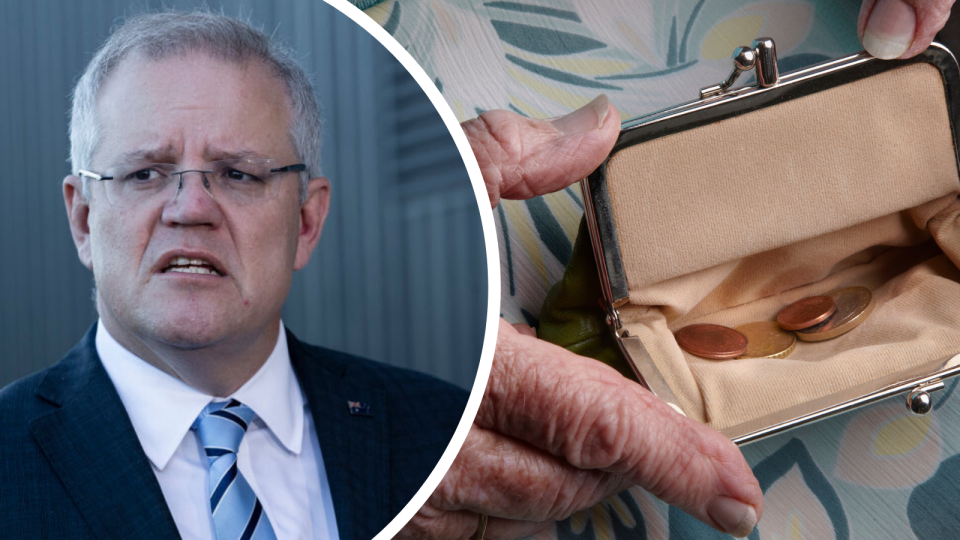‘Won’t stop a recession’: Stimulus useless against coronavirus

Last week the government announced it would inject a $18 billion coronavirus stimulus package into the economy, with pensioners and the unemployed set to receive around $750.
But experts are warning it won’t be enough.
Westpac economists said they were “sceptical” the stimulus would boost spending, and that those who received the cash benefit would be more likely to save it instead.
“This initiative should be applauded but it is likely in this environment that pensioners will save around 75 per cent of the payment,” they stated.
“The spending rate is likely to be higher in the social security and income support groups. However with limited savings these groups are also likely to save around 60 per cent of the $750 payment.”
And $10,000 to $15,000 is “chicken feed” for businesses who stand to lose their income, the economist said.
Economist Stephen Koukoulas told Yahoo Finance that while a fiscal stimulus of this calibre may have worked during prior times of economic stress, it probably won’t be effective now.
“This is unusual,” he said.
“People are being told to stay at home, people are nervous, people are scared. So, in a sense, if you gave people $1 million they wouldn’t spend it, because they just don’t want to move.”
Koukoulas also agreed those who are given the stimulus would be likely to save it.
Also read: $18 billion rescue package: Here’s what it means for you
Also read: ‘Cruelly exposed’: Casual workers ‘abandoned’ in rescue package
Also read: Is now a good time to buy shares?
“They don’t want to jeopardise their savings when the markets are crashing around them - they just don’t know what they might need in a month or two month’s time if this thing lingers,” he said.
Economist Shane Oliver, however, says the stimulus gets his tick.
“The measures - focused on boosting investment and maintaining wages and employment and providing a cash boost to welfare recipients (much of which will get spent) - are all in the right areas,” Oliver said.
But, he said it won’t stop a recession.
“This won’t stop the virus or the lockdowns – which risk extending into August in Australia given our approaching winter – and so probably won’t stop a recession which runs the risk of extending into the September quarter,” he said.
“But along with monetary easing it may help Australia avoid a second consecutive quarter of contraction in the June quarter and even if it doesn’t it will minimise secondary economic effects and hence the depth of the downturn and will help boost the recovery once the virus runs its course - hopefully sometime in the next few months.”
More fiscal stimulus needed
Koukoulas said the government would need to inject more fiscal stimulus into the economy - and to the tune of tens of billions of dollars.
“While it’s a health issue, and obviously it’s important to get everybody healthy again, we’ve also got to keep an eye on the economy,” Koukoulas said.
And $10,000 to $15,000 is “chicken feed” for businesses who stand to lose their income, the economist said.
“You’ve got to get money into people’s pockets,” he said.
Koukoulas said this could look like the government paying the first $300 of everyone’s electricity bill, so they can afford to heat their homes during winter.
Alternatively, it could mean everyone with a PayG, or a tax file number or ABN could receive a cash boost.
“You can do a few things like that for people on PayG incomes, young people, people working for the gig economy - it could even be rental assistance,” Koukoulas said.
“They’re all a bit radical, but this is very, very unusual. This is a radical time we’re going through - we need to look at every option.”
Italy suspends mortgage payments
Italy’s deputy economy minister, Laura Catelli, said individuals and households across the whole of Italy would have their mortgage payments suspended amid the coronavirus outbreak.
It followed Prime Minister Giuseppe Conte’s announcement last Monday telling people to “stay at home”.
“There is no more time. I will take responsibility for these measures. Our future is in our hands,” he said, according to The Guardian.
And Koukoulas thinks the Australians government should do the same.
“Yes it’s a lot of money, and it is unfair in a sense, but it doesn’t matter,” Koukoulas said. “We just have to get money into the economy so that people aren’t scared about being evicted, falling months and months behind in their rent or missing utility bill payments.”
Make your money work with Yahoo Finance’s daily newsletter. Sign up here and stay on top of the latest money, news and tech news.
Follow Yahoo Finance Australia on Facebook, Twitter, Instagram and LinkedIn.

 Yahoo Finance
Yahoo Finance 